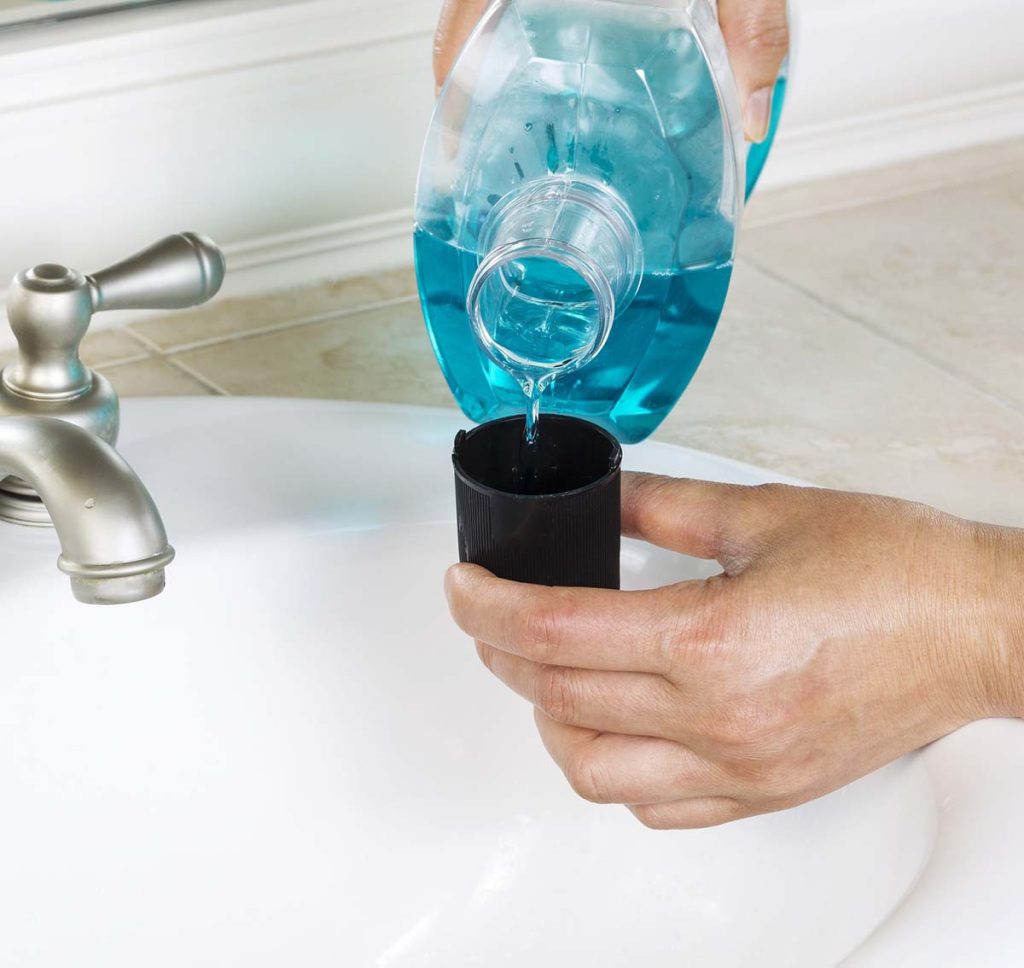Mouthwash can be a powerful ally in preserving oral health when used correctly and as part of a balanced oral hygiene regimen.
Mouthwash, an integral part of oral hygiene for many, is often reserved in our daily dental care ritual. For some, it’s the refreshing kickstart to their day, while for others, it’s the reassuring finale to their nightly routine.
At The Dental Anesthesia Center, we are committed to delivering accurate insights into how such daily practices contribute to overall oral health. If you have questions or concerns about your oral health or need a dental exam, contact us today to schedule an appointment.

The Mechanism of Mouthwash
Mouthwash, also known as oral rinse, works by targeting the bacteria that reside in our mouths. It’s a liquid solution you swish around your mouth, between your teeth, and over your gums to help reduce or eliminate bad breath (halitosis), plaque, and oral diseases such as gingivitis.
- Antimicrobial Action: Mouthwashes that contain antiseptic agents like alcohol, cetylpyridinium chloride, or chlorhexidine can help reduce the oral cavity’s microbial load. They target bacteria, reducing plaque and fighting gingival infections.
- Fluoride Infusion: Some mouthwashes come fortified with fluoride, which strengthens enamel and wards off cavities. By promoting remineralization, fluoride helps in combating tooth decay.
- Neutralization of Oral Acids: Certain mouthwashes can neutralize acids, providing a more alkaline environment less conducive to bacterial growth.
Evaluating Effectiveness
The effectiveness of mouthwash can depend on various factors, including its composition, the duration of its use, and the individual’s oral hygiene practices.
- Active Ingredients: The effectiveness largely depends on the active ingredients. Antimicrobial agents, fluoride, and other compounds play a crucial role in determining the efficacy of a mouthwash.
- Consistent Use: Mouthwash may provide a temporary solution for bad breath and can contribute to the overall cleanliness of the mouth. However, its benefits are likely to be more pronounced with consistent use.
- A Complement, Not a Substitute: Mouthwash is not a substitute for brushing and flossing but a complementary part of a comprehensive oral care routine.
Choosing a mouthwash that aligns with your specific dental needs is crucial. For instance, those prone to cavities might opt for a fluoride mouthwash, while someone battling gingivitis might choose an antimicrobial rinse.
Call Us Today
The first two board-certified Dentist Anesthesiologists in the state of Missouri.
